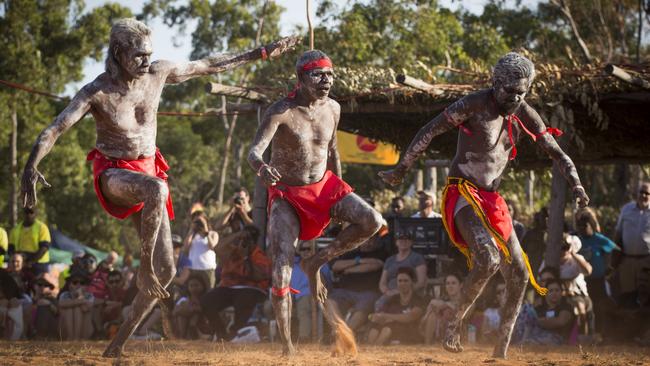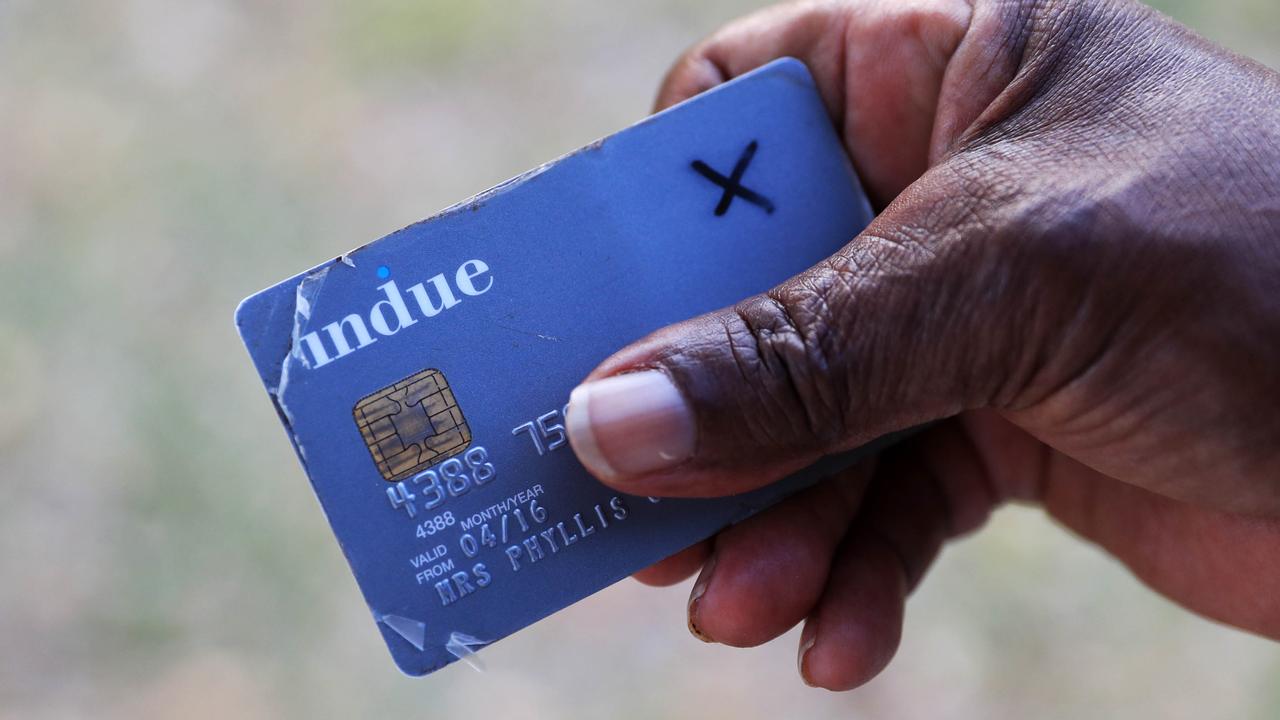ALP breaks ranks on indigenous recognition
Bill Shorten has imperilled the indigenous referendum by supporting a radical form of reconciliation.

Bill Shorten has imperilled the indigenous referendum by breaking bipartisanship on the issue to support a radical form of reconciliation aimed at pushing a treaty-like process designed to resolve grievances dating back to European settlement.
The Opposition Leader yesterday backed plans unveiled by Cape York leader Noel Pearson at the weekend for constitutional reform to insert a “hook” into the nation’s birth certificate, off which could then be hung a settlement process likely to see individual First Nations bodies strike a network of deals covering large parts of the continent.
Mr Shorten sided with Mr Pearson and Arnhem Land leader Galarrwuy Yunupingu in calling for the radical approach just as the Referendum Council, established in December to chart the next steps, has heard warnings from indigenous people that recognition without some form of treaty would be unacceptable.
“Let’s be straight: constitutional recognition is important, and it shouldn’t be beyond the wit and wisdom of the nation to be able to recognise our First Australians in the nation’s sort of official birth certificate; but that is not in and of itself going to resolve every issue for the last 200 years,” Mr Shorten said.
“What we need to do is have practical reconciliation and symbolic reconciliation. I don’t think people need to run away screaming as soon as the word treaty is used. We just need to, some of the protagonists need to get over themselves, and I think we can work all of these issues through.”
Michelle Rowland defends Bill Shorten over indigenous referendum
Most Australians had “a bit of common sense” and were not horrified by “talk about what a settlement (with indigenous people) looks like”, he said.
Mr Shorten defined the test for successful recognition as “when young Aborigines aren’t being jailed in the numbers they are, when Aboriginal people are getting the same life expectancies, when there is genuine recognition of the First Australians in our forums, in our agreements, in our Constitution”.
That vision effectively describes not just treaties but the entire exercise of Closing the Gap.
Malcolm Turnbull last night declined to respond to Mr Shorten’s remarks. When the Opposition Leader mentioned a treaty on the ABC’s Q&A program during the election campaign, the Prime Minister chided him for breaking bipartisanship.
Mr Turnbull said successful constitutional recognition required not just bipartisan support but “enormous public support”, and that introducing treaty debate added “a level of uncertainty that puts at risk the constitutional recognition process”.
Mr Turnbull did, however, say he thought indigenous Australia had been “invaded”.
In Canada and New Zealand settlements worth hundreds of millions of dollars have been reached with indigenous people flowing from treaty-type arrangements.
Mr Shorten’s move to reshape the reconciliation debate precedes confirmation that anything beyond symbolic recognition would be likely to achieve the near 90 per cent support required for a constitutional referendum to pass. It even comes before some indigenous leaders themselves are comfortable saying the nation is ready to discuss treaties.
Indigenous leaders have previously argued they must have the final say in how they are to be recognised.
Mr Shorten yesterday also attacked Mr Turnbull for failing to properly consult with indigenous people about the need to appoint an Aboriginal man and woman alongside Brian Martin to head the royal commission into abuses in youth detention in the NT.
He said the issue was a serious test of the commission’s credibility and he hoped Mr Turnbull would do the right thing.
Speaking at Garma Festival in Arnhem Land, Mr Pearson warned that the indigenous affairs debate had “hit rock bottom”.
While acknowledging the inherent difficulty of changing Australia’s Constitution and reflecting gloomily on the recognition process to date, he said radical reform was necessary to address “this parlous situation that we’re in at the moment where we really don’t believe the next announcement, we really don’t believe that the next set of policies is going to get us there”.
“We should think in terms of a package, a road map, a cascade of reforms … it will take time for us to roll that out. It may be five or 10 years of work, once we get the hook in the Constitution.”
Mr Pearson has previously advocated more modest forms of recognition, warning that conservatives would be unlikely to countenance anything too broad.
The Weekend Australian on Saturday revealed Mr Pearson had joined with Mr Yunupingu in a shift of both their positions to call for a “final settlement” the pair described as constitutional recognition of First Nations bodies leading to a network of treaty-like deals.
Mr Yunupingu later said that settlement should also include constitutional protection of Aboriginal land rights, and described James Cook’s claim to the continent, the basis of non-indigenous occupation, as a “lie” and “crap”.
“The land of Aboriginal people, ownership, has to be owned by Aborigines themselves, forever. What that means is the truth of the land. The land has to be theirs by constitutional rights: rights to everything. He must have the rights to that land,” he said.
Incoming Labor NT senator Malarndirri McCarthy, who also attended Garma, warned that constitutional recognition without a treaty was not on her agenda and that she would be pushing the leadership in this direction.
“Treaty exists somewhere along that line but it should be viewed as the clear instrument for bringing all those areas together — it’s a tool with which by looking at other processes internationally, we can see what’s worked and what hasn’t,” she said.
Mr Shorten said May 27 next year remained his preferred date for the poll but that the Referendum Council’s nationwide series of indigenous conventions would have to finish and report first. The council’s report was supposed to be done by June 30 this year. There has so far been no announcement of formal consultations. or engagement with non-indigenous people.


